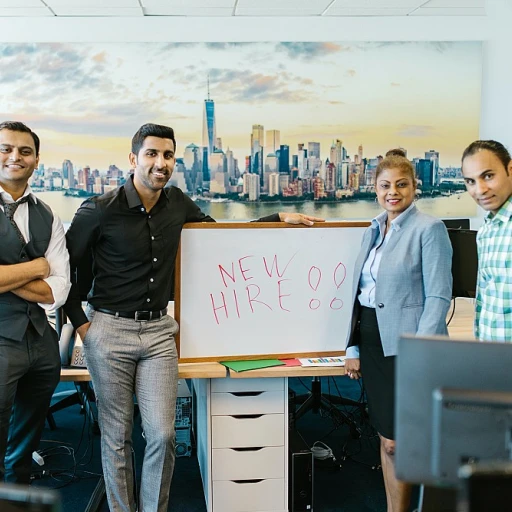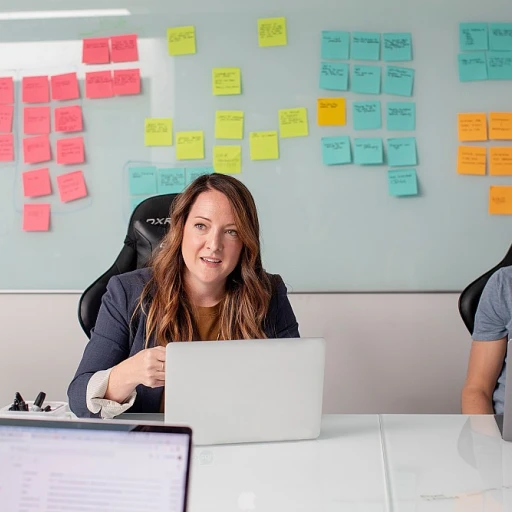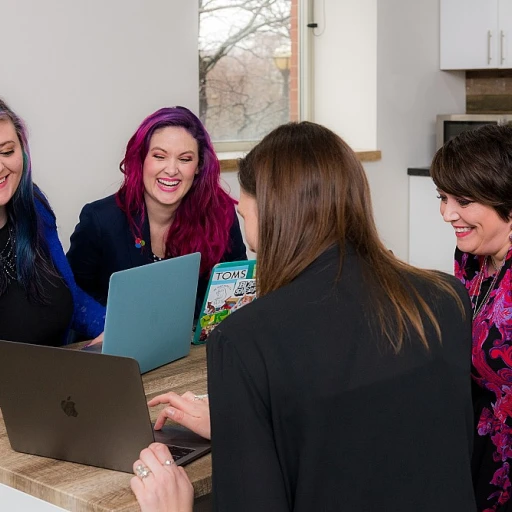
Understanding the Importance of Team Building
The Role of Team Building in Modern Workplaces
In today's fast-paced work environment, the importance of team building cannot be overstated. It serves as a cornerstone for fostering effective communication, enhancing problem-solving skills, and improving overall team dynamics. For office managers in New Zealand, understanding the nuances of team building is crucial to creating a cohesive and productive work atmosphere.
Why Team Building Matters
Team building activities are more than just fun games or exercises. They are strategic tools designed to bring team members closer, improve communication skills, and tackle common workplace challenges. Whether it's a virtual escape room or a classic egg drop challenge, these activities help in honing decision-making skills and fostering a sense of unity among team members.
Building a Strong Foundation
Effective team building lays the groundwork for a positive company culture. It encourages team members to collaborate, think creatively, and solve problems together. This not only boosts morale but also enhances productivity. Engaging in problem-solving activities like scavenger hunts or code break games can transform a group of individuals into a well-oiled machine, ready to tackle any challenge that comes their way.
Time Investment and Returns
Investing time in team building activities is essential for long-term success. Even dedicating just a few minutes each week to a fun team activity can yield significant benefits. It helps in breaking down barriers, building trust, and improving overall team dynamics. The best part? These activities can be tailored to suit the specific needs and preferences of your team, ensuring maximum engagement and impact.
For more insights on how to effectively conclude team building sessions and meetings, consider exploring effective ways to conclude a meeting in your company.
Identifying Common Challenges in New Zealand Workplaces
Addressing Shared Workplace Obstacles
In New Zealand, like many workplaces globally, teams encounter common hurdles that challenge their efficiency and cohesion. Understanding these challenges is a crucial step in designing effective team-building activities that will enhance dynamics and improve communication skills. Common issues often include communication gaps, lack of engagement, and decision-making delays. Identifying these barriers can help in formulating targeted strategies aimed at overcoming them.
Communication issues may arise from varying personalities, remote work settings, or simply a lack of structured team member interactions. To tackle these, consider virtual team activities that encourage interaction, such as a virtual code break or a fun murder mystery challenge, which inherently demands collaboration and communication.
Another frequent problem is low engagement, often fueled by repetitive routines or insufficient recognition. By integrating fun team activities such as an egg drop challenge or a scavenger hunt, you can stimulate excitement and involve team members in scenarios that require creativity and problem-solving.
Decision-making can be another prevalent challenge, where teams struggle to swiftly come to consensus. Incorporating problem-solving activities, like an escape room, can strengthen these vital problem-solving skills by simulating pressure scenarios requiring prompt decisions and strategy development.
Overall, keen awareness of these shared challenges puts you in a better position to customize activities to your team's needs. For further insights into effective workplace dynamics, refer to our blog on enhancing dynamics through business lunches. These activities not only foster team spirit but also significantly enhance company culture in New Zealand workplaces.
Effective Problem Solving Activities for Teams
Engaging Activities to Elevate Team Cohesion
In contemporary New Zealand workplaces, the emphasis on collaborative and communicative problem-solving has never been more vital. A variety of team building activities can be leveraged to enhance group dynamics and challenge members to develop their skills. Here are some effective approaches to incorporate:- Virtual Escape Rooms: These activities stimulate problem-solving and decision-making, encouraging team members to collaborate in real-time while navigating virtual puzzles. Teams can experience the thrill of time-sensitive challenges, promoting quick thinking and effective communication.
- Murder Mystery Events: This engaging group activity fosters a playful atmosphere where team members work together to solve a fictional case. Through role-assignment and investigation, it boosts communication skills and enhances logical thinking.
- Scavenger Hunts: Whether in-person or digital, scavenger hunts prompt team collaboration and strategic planning. These fun team activities require participants to work efficiently under a time limit to reach shared goals.
- Egg Drop Challenges: This creative problem-solving exercise encourages team members to design a protective package to prevent an egg from breaking when dropped. It inspires innovative thinking and highlights the importance of testing and iteration.
- Code Break Games: Partnering problem-solving with friendly competition, code break games involve decoding cryptic clues. These require logical reasoning and bolster cooperative interactions among team members.
Tailoring Activities to Your Team's Needs
Customizing Problem Solving Activities for Your Team
Every team is unique, and so are their challenges and strengths. Tailoring problem-solving activities to fit your team’s specific needs can significantly enhance their effectiveness. Here’s how you can ensure that your team building activities are not only engaging but also impactful.
Assessing Team Dynamics
Before selecting an activity, take a moment to assess the current dynamics of your team. Are there communication barriers? Is decision making a challenge? Understanding these aspects will help you choose activities that target specific areas for improvement. For instance, if communication skills need enhancement, activities like a murder mystery or escape room can encourage team members to communicate more effectively under pressure.
Choosing the Right Activities
- Escape Rooms: These are excellent for fostering teamwork and problem-solving skills. They require team members to work together to solve puzzles and escape within a set time, usually around 60 minutes.
- Scavenger Hunts: Perfect for encouraging collaboration and strategic thinking. Teams must work together to find items or solve clues, which can be tailored to your office environment.
- Egg Drop Challenge: A fun team activity that promotes creativity and innovation. Teams are tasked with creating a structure to protect an egg from breaking when dropped from a height.
- Virtual Team Building Games: For remote teams, virtual activities like code break games can be a great way to build problem-solving skills and keep the team engaged.
Adapting to Team Preferences
It’s important to consider the preferences and comfort levels of your team members. Some may prefer more physical activities, while others might enjoy mental challenges. Offering a variety of options ensures that everyone can participate and benefit from the team building experience.
Scheduling and Time Management
Time is a valuable resource in any workplace. Ensure that the activities you choose fit within your team’s schedule. Shorter activities, such as a 30-minute problem-solving game, can be just as effective as longer sessions if they are well-planned and focused.
By tailoring problem-solving activities to your team’s specific needs and preferences, you not only enhance their skills but also strengthen the overall company culture. Remember, the best activities are those that are both fun and challenging, providing a platform for team members to grow and collaborate effectively.
Measuring the Impact of Team Building Initiatives
Evaluating the Success of Team Building Initiatives
Measuring the impact of team building activities, especially in a dynamic work environment like New Zealand, is crucial for ensuring they effectively contribute to enhancing team dynamics and solving workplace challenges. Here’s a structured approach to assess their success:
- Check in with Team Members: After conducting team building activities, such as a virtual escape room or a fun scavenger hunt, engage with participants in group discussions or anonymous surveys. This will help gather honest feedback about the activities’ impact on team communication skills and problem-solving skills.
- Assess Improvements in Communication: Effective team building activities should enhance communication skills within the team. Observe whether there is a notable change in how team member interactions occur. Are team members more open to sharing ideas, participating in decision making, and addressing challenges together?
- Measure Team Performance: Evaluate any improvements in team performance on work projects. Problem-solving activities like the egg drop or code break that encourage decision making can enhance analytical thinking and collaboration, positively influencing team outputs.
- Analyze Retention and Engagement Rates: Enhanced team dynamics through building activities often lead to improved job satisfaction. Keep an eye on retention rates and team member engagement levels. Lower turnover and higher motivation are indicators of successful team building.
- Track Company Culture Changes: Ongoing team building can gradually shape a more positive company culture. Monitor shifts in workplace atmosphere and collaboration, which can be gauged by regular staff meetings and feedback sessions.
By evaluating these criteria, office managers can make informed decisions about adjusting the content, duration, or type of activities to better meet the evolving needs of their teams and to make the most of their time and resources. Continuous assessment ensures that your efforts in building enhanced team dynamics are well-directed and cost-effective.
Best Practices for Office Managers
Essential Tips for Office Managers
As an office manager, you play a crucial role in nurturing the team dynamics within your office. Implementing problem-solving activities effectively requires strategic planning and engagement. Here are some best practices that can help you succeed:- Understand Your Team's Needs: It’s essential to recognize the specific challenges and strengths within your team. Tailor activities like an escape room or a murder mystery to target the particular problem areas, whether it be communication skills or decision making.
- Create a Balanced Schedule: Allocate sufficient time for team-building activities to be both effective and enjoyable. A well-timed session, even as short as 30-45 minutes, can energize your team members without disrupting their work routine.
- Encourage Engagement: Ensure all team members are actively participating in activities. Facilitate challenges that require collaboration, such as an egg drop challenge or a scavenger hunt, to enhance team interaction.
- Leverage Virtual Experiences: With many teams working remotely, virtual team building activities can keep everyone connected. Engaging online games or a virtual code-break exercise can be both fun and productive.
- Monitor and Measure Impact: Regularly assess the outcomes of these activities. Use surveys or feedback sessions to measure improvements in team communication and problem-solving skills. This will inform future planning and show areas for improvement.












